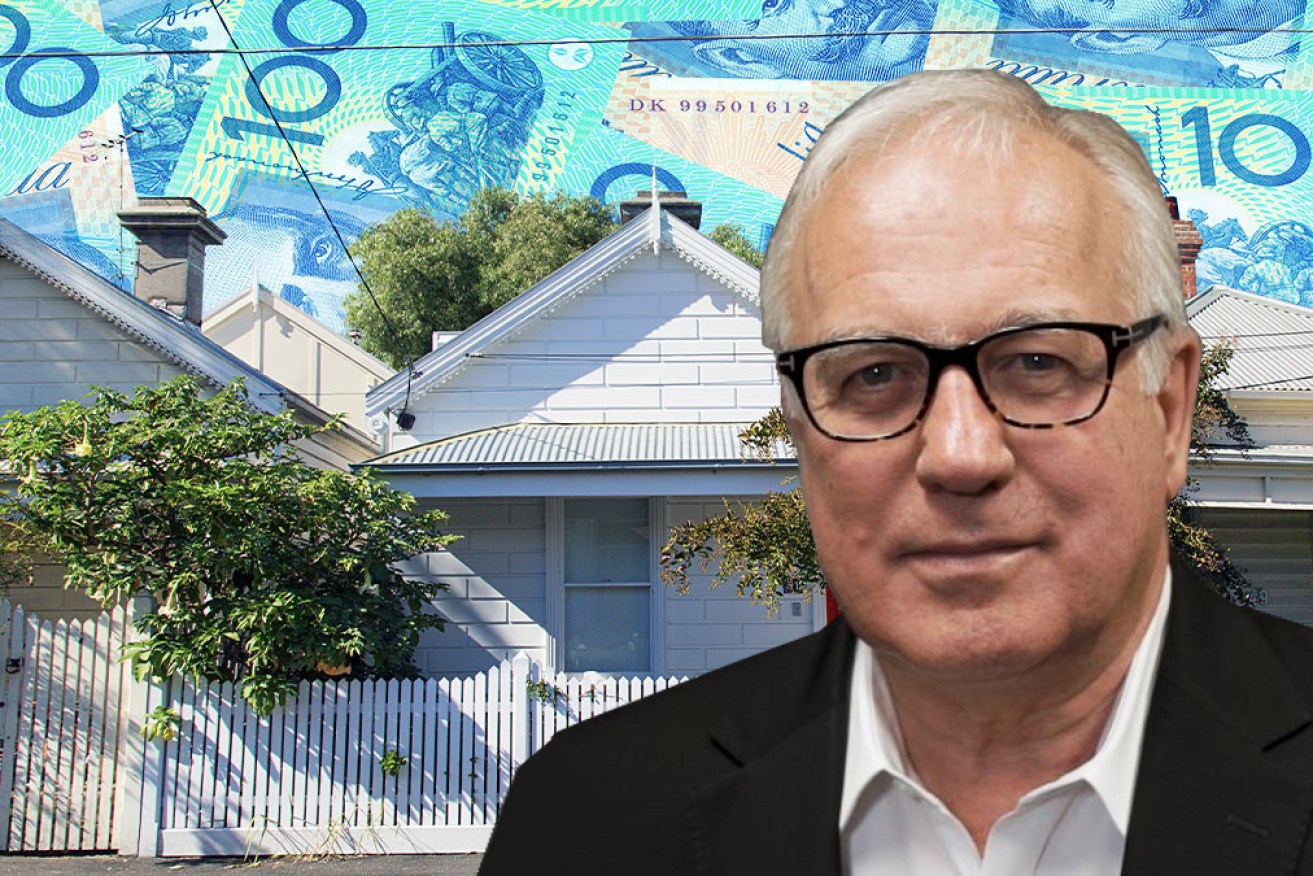Alan Kohler: Housing needs a major reset, free from politics


Reform is desperately needed to lower housing debt and increase access, writes Alan Kohler. Photo: TND
The places we live in are now worth $9.1 trillion, up from $8 trillion just five months ago.
That’s more than all commercial real estate, superannuation and ASX companies combined.
Unlike previous booms, the one we are in now is being driven by owner-occupiers, not investors.
That’s because of the pandemic, in two ways.
Our homes are everything. We now work there, as well as sleep, eat and watch TV there. We can’t travel or go out – we’re stuck at home, at least for while longer. It’s no wonder the market has got emotional.
But the boom is mostly due to the lowest interest rates in history, also due to the pandemic: Despite the rise in house prices and debt, overall repayments have fallen.
Last week, a real estate agent told me about a young couple who’d just bought a house off him for $3.5 million.
The reserve had been $2.8 million, but spirited online bidding took the price a spectacular $700,000, or 25 per cent, above that.
He asked them: “What’s your mortgage?”
“$2.4 million”, they replied proudly. After all, that meant they had more than a million for a deposit and bank approval for that kind of loan. (We did something similar when we started out, without the deposit, so I’m not judging).
But if it was a two-year fixed-rate mortgage at 2 per cent interest – about the lowest rate you can get at the moment – the repayments would be $8859 per month, after tax.
That means this couple has to earn $150,000 before tax just to service the mortgage, before buying food and paying any bills.
They’re obviously not poor, and good luck to them, but things could get sticky if and when interest rates start rising.
They won’t be alone in that.
The average mortgage is now $600,000, up $80,000 in one year. At 2 per cent interest, that size mortgage requires $31,104 a year in after-tax income to service, which is about half the average take-home pay.
Meanwhile, two things happened on Friday that might dishearten those who have watched, stranded during Zoom auctions as the price whizzes past their limit.
First, the Reserve Bank wrote in its “Financial Stability Review” that “housing prices remain broadly in line with fundamentals”. Move along, nothing to see here.
Second, the Victorian government launched something called the Homebuyer Fund to help people buy a house.
These sorts of schemes simply add to demand and push prices higher.
The new Victorian one is limited, so it probably won’t cause much damage: The fund will buy up to 25 per cent of 3000 houses that are worth up to $950,000 in value in Melbourne and Geelong and up to $600,000 in the rest of the state.
The buyer only has to put up a deposit of 5 per cent. It’s similar to a federal government scheme in which the government provides a loan guarantee to allow a 5 per cent deposit, rather than actually owning part of the house.
There’s nothing in the publicly available fine print about how the price of the house is determined, so we can only assume that the putative home owner – or rather 75 per cent owner with the state government – simply bids at auction or pays the developer’s asking price if it’s a new house.
But it means more people bidding, able to pay more.
The purpose of each of these schemes is to provide the wording for a press release that would make it look like governments are doing something to offset the effect of their policies.
Government policies have caused house prices to rise. They are well known and have been written about endlessly in inquiries and reports:
- First-home buyer schemes since the mid-1960s
- Capital gains tax discount and negative gearing
- Punitive taxes on developers
- Zoning restrictions
- Under-funding of transport infrastructure
- Higher immigration after 2005
- And, above all, the cut in the RBA cash rate to 0.1 per cent.
There’s one other factor that’s not usually mentioned: The government is setting an example with its own debt.
Total Australian government debt is currently about $1.5 trillion, including $850 billion for the federal government, and it’s still borrowing $2 billion or so a week.
So, lots of debt is officially OK and governments are no longer too worried about getting it down, except when there’s something they don’t want to spend money on, like health care.
In one way that’s fine – governments are not like households and don’t have to run surpluses and pay off debt.
But I’d say that after years of hearing the story that governments are like households and must balance their books, maybe households are thinking: “Well, if governments can let themselves go, and borrow to the hilt and beyond, so can we.”
In other words, if governments aren’t worried about debt, why should we worry?
It’s a fair question, and I bet a lot of people are asking it – including, perhaps, the young couple with a $2.4 million mortgage.
There are a few good submissions to the current parliamentary inquiry into housing affordability and supply, headed by Jason Falinski, but one of the best is by a group of six academics led by Professor Emma Baker, a professor of housing research at the University of Adelaide.
To paraphrase a typically dense academic paper, they wrote that the housing system is complicated but policies are often ideological, vested or irrational, which has led to piecemeal fixes that are insufficient and perverse.
Politics has a lot of trouble with complex things, and is really only good at piecemeal change, at least lately.
That includes the tax system, the tangle of grants, transport and car park rorts, zoning, public housing, bank lending rules and interest rates.
Professor Baker’s group is right: The housing system needs to be thought about comprehensively, and reset from the ground up, free from politics.
Alan Kohler writes twice a week for The New Daily. He is also editor in chief of Eureka Report and finance presenter on ABC news








